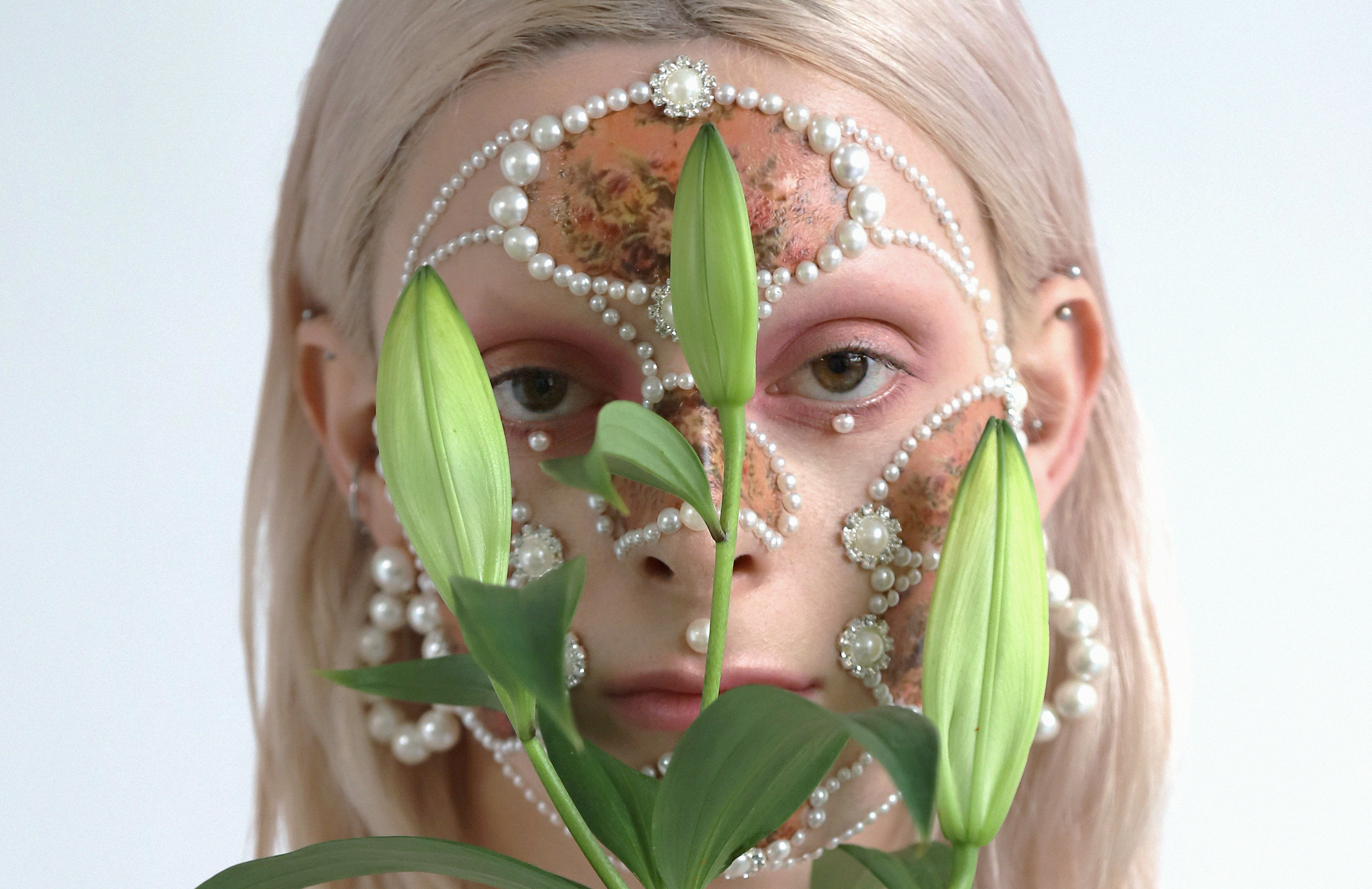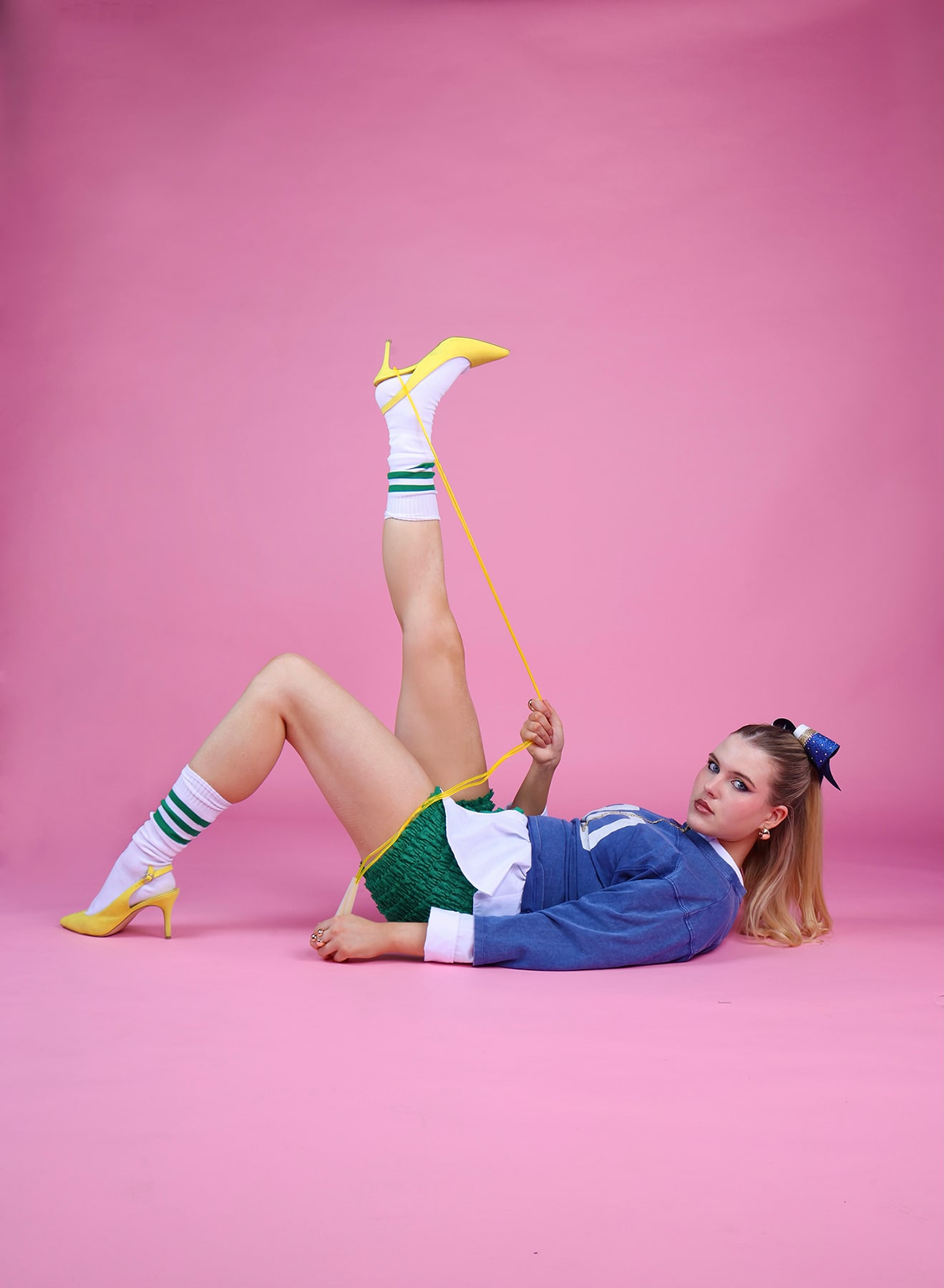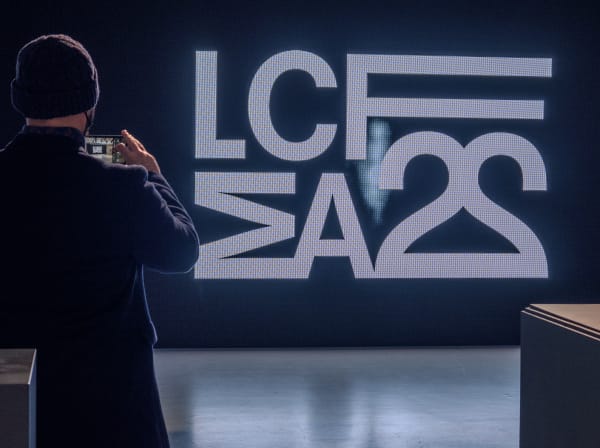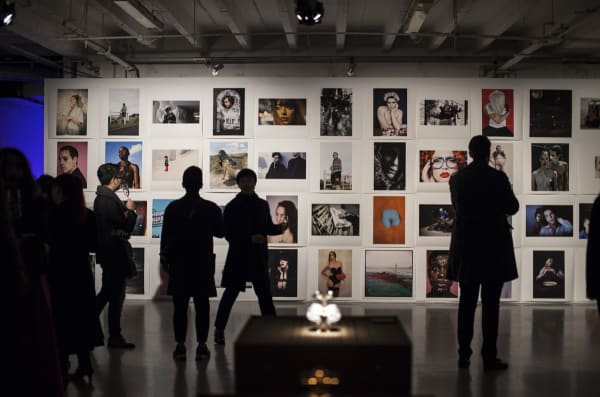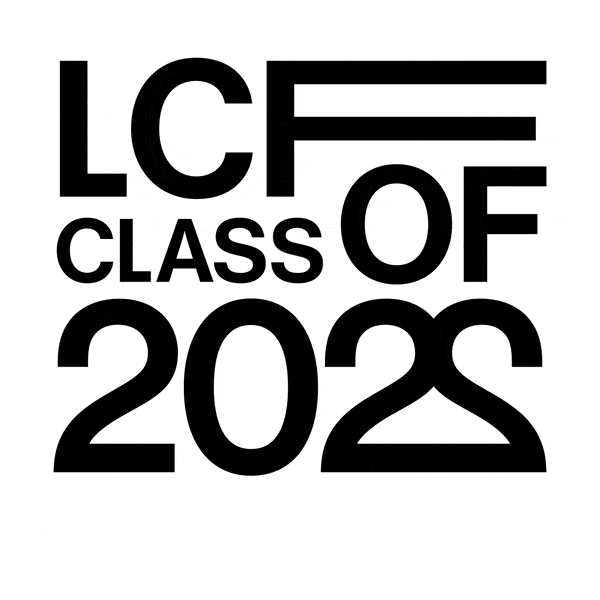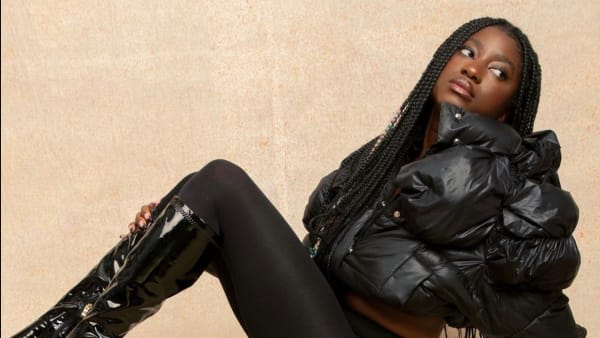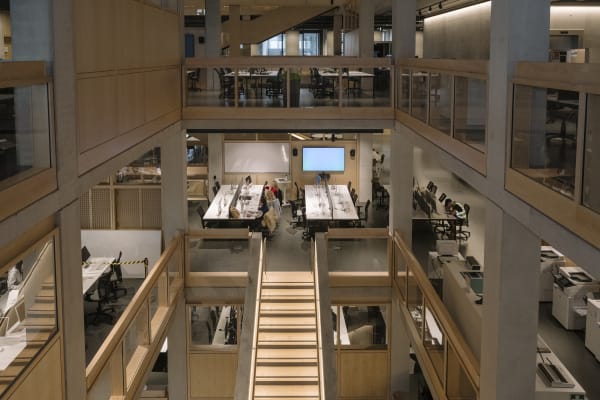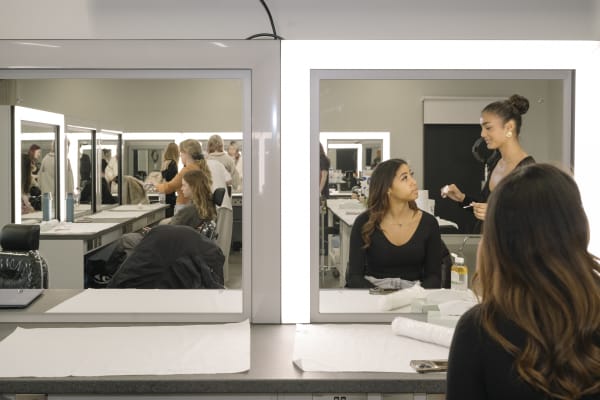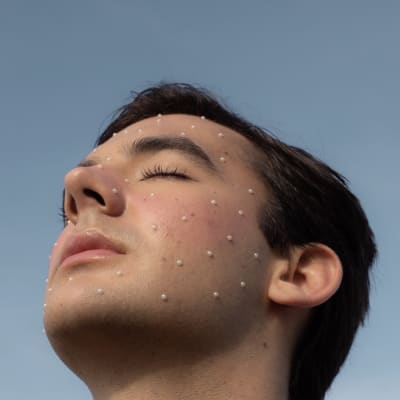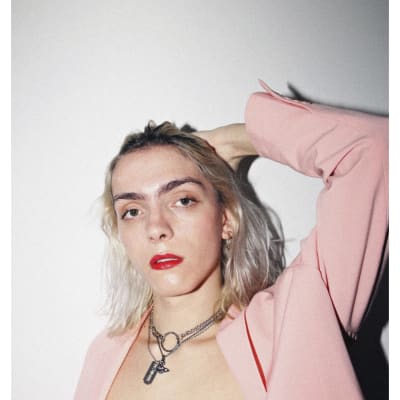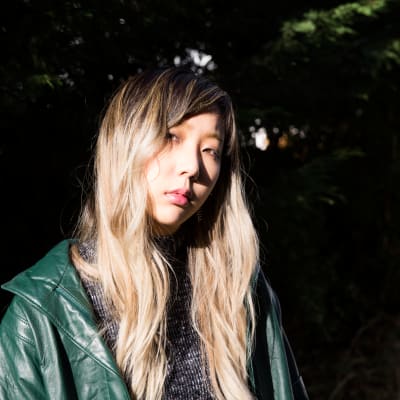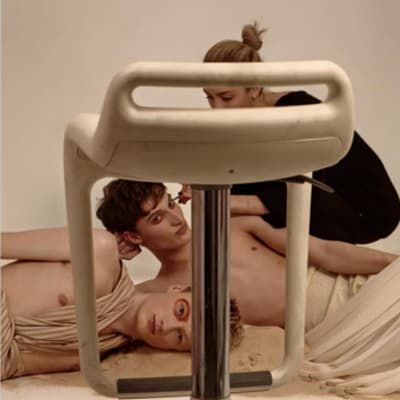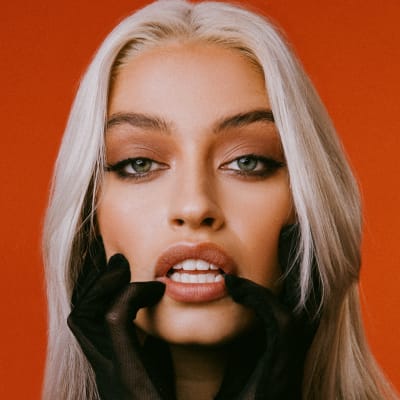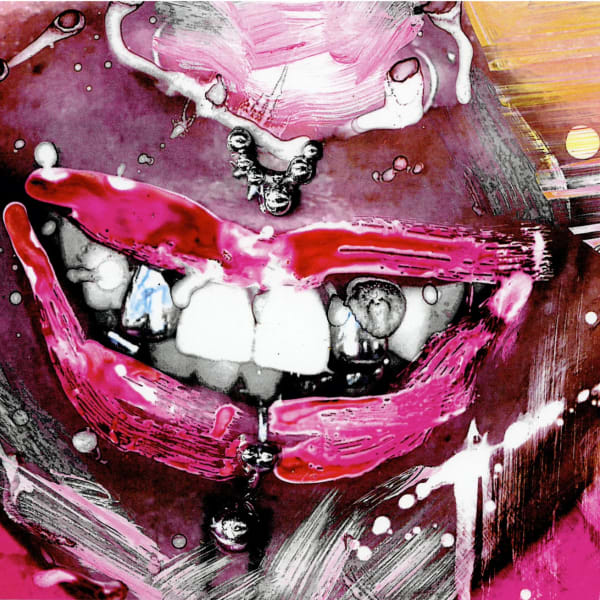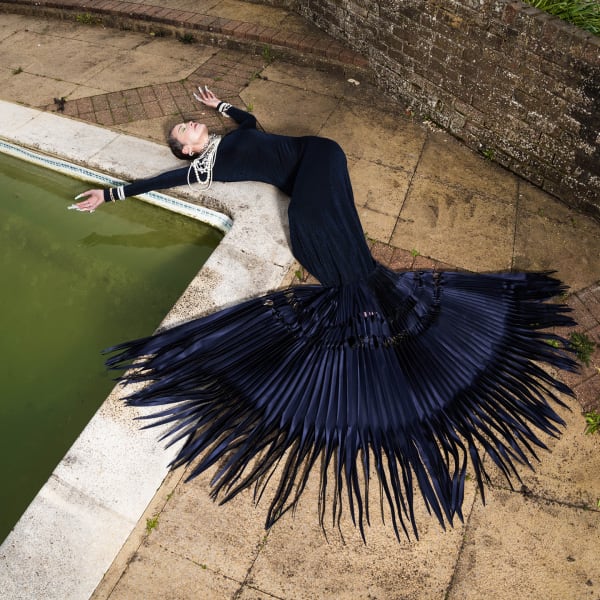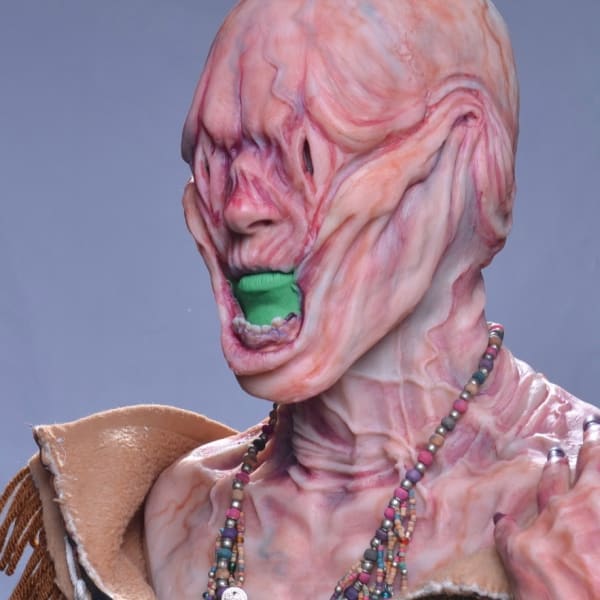Course units
In Stage 1 you are required to complete 120 credits at Level 4 in order to progress to Stage 2 and level 5.
- Introduction to Fashion Media; 20 credits
In this unit, you will be introduced to your course, its subject specialism and effective learning at undergraduate level. You’ll learn the practices and knowledge base needed to understand your discipline and develop skills for independent & collaborative learning, reflection, and your own self-development. You’ll also consider your own background and how it shapes your approach to the course.
- Fashion: Process and Practice; 40 credits
This unit explores the interplay between fashion hairstyling and make-up application, with a focus on process, conceptual application, contexts, and audiences of fashion image productions. You will be introduced to key fashion topics and global themes relating to hair and make-up design for contemporary fashion imaging. You will also begin to develop your professional identity for employability.
- Fashion Moving Image Production; 40 credits
In this unit, you’ll take a specific role relevant to your hair and make-up specialism and work as part of a collaborative, cross-program team to create a socially-engaged fashion film production. You’ll learn the tools, processes, and roles required for successful moving image practice and how to communicate impactful fashion narratives through visual storytelling.
- Fashion Cultures and Histories; 20 credits
You’ll take a philosophical and theoretical approach to the study of fashion and its role in representing and communicating identity. Understand key ways of thinking about fashion across its cultural, historical, social and political contexts. Engage in debate and analysis of fashion as a key marker of social and cultural change and a means of understanding the relationship between individuals and communities.
In Stage 2 you are required to complete 120 credits at Level 5 in order to progress to Stage 3 and level 6.
- Critical Issues in Fashion Research; 20 credits
Expand your critical understanding of fashion in a global context and examine emerging debates in fashion research. You’ll engage in collaborative research around current and emerging cultural issues and be guided through approaches to researching and writing about fashion across its social, historical, political and cultural contexts, building on the first-year unit Fashion Cultures and Histories. You’ll develop your own independent research path and interests.
- Artistry in Industry; 40 credits
Gain an understanding of the many roles a hair and make-up artist can occupy in industry and learn how to develop a professional identity. You will unpack the essential dynamics between a hair and make-up artist, the client, and audiences to produce a fashion hair and make-up production which aligns with your future ambitions. You will be supported in consolidating and reflecting on your second year of study.
- Collaborative Practice: Fashion Spreads; 40 credits
Explore how the editorial format has been articulated in historical and contemporary contexts and create contemporary fashion stories in response to climate, racial and social justice principles. Through teamwork, collective enterprise and cooperation you will apply your fashion hair and make-up skills across the editorial space and understand relevant career prospects. You’ll also explore the relationship between fashion content and audience.
- Elective option 1: Creative Directions; 20 credits
In this unit, you’ll critically reflect upon your developing practice in the course so far and map your creative directions moving forward. You will think about the interplay between your hair and make-up practice in academic and industry contexts to consider potential audiences and develop your portfolio and network.
You’ll also consider the value of assets, content creation, curation, editing, art direction, and networks in relation to your discipline.
- Elective option 2: Fashion Media Placement; 20 credits
In this unit, you’ll develop your professional skills within an industry environment. On your placement, you’ll experience the pace, atmosphere and discipline of working in the industry and gain practical experience of its roles, functions and operations. There is lots of support to help you find a placement available via our Graduate Futures Placement Team.
Optional Diploma Year
CCI Creative Computing
Between years 2 and 3, you can undertake the year-long Diploma in Creative Computing. This will develop your skills in creative computing alongside your degree. After successfully completing the diploma and your undergraduate degree, you’ll graduate with an enhanced degree: BA (Hons) Hair and Make-up for Fashion (with Creative Computing).
Industry DIPS
This optional diploma can be taken between years 2 and 3. With support from your tutors, you’ll undertake an industry placement for a minimum of 100 days/20 weeks. As well as developing industry skills, you’ll gain an additional qualification upon successful completion.
Enterprise DIPS
This optional diploma can be taken between years 2 and 3. With support from your tutors, you’ll undertake an enterprise placement year where you will explore a business idea from proposal to minimal viable product (MVP). As well as developing enterprise skills, you’ll gain an additional qualification upon successful completion.
CCI Apple Diploma
Between years 2 and 3, you can undertake the year-long Diploma in Apple Development. This will give you an opportunity to become an accredited apple developer alongside your degree. After successfully completing the diploma and your undergraduate degree, you’ll graduate with an enhanced degree: BA (Hons) Hair and Make-up for Fashion (with Apple Development).
In Stage 3 you are required to complete 120 credits at level 6.
- Elective Option 1: Fashion Narratives: A Visual Study; 40 credits
In this unit, you will explore the interplay between research and practice by incorporating a chosen methodology with your existing creative practice. You will be introduced to a range of different research methods. Your chosen methodology will shape your creative practice and build your confidence in future visual work. Building upon previous learning from your Cultural and Historical Studies classes, you’ll produce a narrative-driven visual study comprising of a series of still images, as part of a visual and written essay.
- Elective Option 2: Creative Industries: Theories and Practices; 40 credits
In this unit, you’ll complete an independent research project and engage with industry professionals to learn about current debates and issues that shape and inform cultural production across media, communication and performance. You’ll be encouraged to respond to these debates in the form of an extended essay with supporting research materials. This unit will equip you with critical thinking, literacy and communication skills for both academic and professional contexts.
- Fashion, Employability, and Enterprise; 20 credits
In this unit, you’ll consider your future employment aspirations and be supported in researching the current employment landscape in relation to hair and make-up. You’ll explore employment opportunities within academic and creative industries, considering the platform, audience, and context of your work. You’ll create a fashion enterprise toolkit which summarises your research, including the skills and resources required to orientate yourself towards your chosen direction.
- Fashion Communities and Practice; 60 credits
In this unit, you’ll explore how fashion has the potential to empower and effect positive change. You’ll produce an experimental fashion media production that explores how your personal fashion-image making can engage with the principles of climate, racial and/or social justice. You will situate your personal creative practice within a community context that has resonance for you. You’ll have the opportunity to expand the parameters of your work through collaborations that facilitate experimentation, creative thinking, practical testing, and reflective problem solving.
A 20-credit unit is approximately equivalent to 200 hours of learning time, which includes a mixture of taught time, independent study and assessment.
All students are entitled to a tutorial package that consists of:
- one induction tutorial (group or one to one)
- one tutorial per term for the duration of their course of study at LCF;
- group tutorials as required
- an appropriate level of confidentiality
